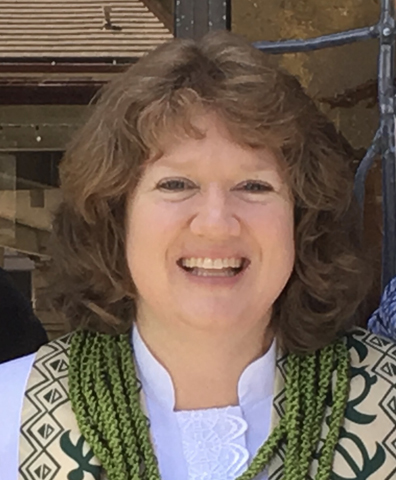QUESTION: We have a 7-year-old grandson who is shy. He has always been shy, even as a baby. His parents are both outgoing so we just don’t understand how he could be this way. He’s now in second grade, pays attention and gets favorable grades but, as far as we know, he doesn’t have any friends. He does interact well with older family members but not with his cousins. In a group of children, as in Sunday school, he observes but doesn’t enter into any discussion.
This is our question: Our daughter and her husband are thinking about having a party for his 8th birthday and inviting several boys from his class. Even though we haven’t told them we think our grandson would be uncomfortable. What do you think?
~ Caring Grandparents
Dear Caring Grandparents,
How blessed is your grandson to have such a loving and caring family! It is evident that you want the best for your grandson.
Every child – every person – is a unique expression of the Divine. Each has their own personalities and dispositions, some shy and introverted and others outgoing and social. Some children appear to be wise for their age and others immature. Your grandson’s shyness may be an integral aspect of his personality or it may be something he grows out of as he gets older and more sure of himself. The key thing is whether he’s happy, healthy and loved.
Have you considered suggesting to your daughter and her husband that they ask their son if he’d like a party? Your assumption that he may be uncomfortable may not be accurate. Just because it appears he has no friends or doesn’t participate in discussions doesn’t mean he won’t enjoy having a party.
My son was exactly as you’ve described your grandson. He preferred the company of those older than him and had few – if any – friends his own age. However, when we involved him in planning his birthday parties, he was able to relax and enjoy the festivities without feeling overwhelmed or pressured.
Our role as parents and grandparents is to provide the best environment we can to allow our children to grow into responsible, caring adults. And we have to be willing to let go of our expectations to allow for the realities. If your grandson truly doesn’t want a party or a party with boys his own age, perhaps a small family celebration is just what is needed to honor and celebrate your grandson’s birthday.
Sending light and Happy Birthday to your grandson!
Warmly,
Rev. Dr. Ellen Contente
revellenfaith@gmail.com
Dear Caring Grandparents,
A long life is filled with transitions from one age to the next. We are constantly learning our new roles and being the best person we can be during each stage of life. We go from infant to child to teen to becoming an adult. It is a complex and difficult journey where we are the ones learning and growing. Then comes parenting; while we are still in the learning process ourselves we suddenly find that we are helping others to grow. It is funny how the most complex task in life – raising children – doesn’t come with an instruction manual. Yet from stage-to-stage we go, trusting that we can be what our children need us to be.
First they start off as infants and then, just as you think you understand how to parent an infant, they suddenly turn into a child. Then the learning curve begins all over again.
The point is life is a continuous chain of transitions in which we must learn each stage as we pass from one season in life to the next. When my wife and I were raising our children together our parents would often provide experienced counsel that we would honor and consider. Sometimes we would use it and sometimes we would prefer to try something else. My parents would acknowledge and respect our choices even when we were wrong. We were learning all along the way. This confidence in us helps us to be better parents. The role of a grandparent is not to raise the grandchildren, but to be a trusted source of wisdom for our children as they learn to parent. We provide options and trust our children to be the parents they need to be. The decision is theirs and theirs alone. In Proverbs, it says, “A good person leaves an inheritance to their children’s children.” Your inheritance is more than just material wealth and is also your loving support to your grandchildren’s parents. It is in the example you set in how you interact with your own children that will set the example for your grandchildren. It is a legacy that will hopefully never end.
So back to your question. Should you mention the fact that your grandson might not be comfortable in a party setting with friends that he does not relate well to? Yes, not as a parent but rather a trusted advisor that provides options to the parents of your grandchildren. Give them the grace to make the decision and for them to learn from each experience how to better parent. Never shame them or tell them, “I told you so,” but help them learn from your experience when they choose to listen to you. There may be some frustrating moments, but your own children will value you more than ever and your grandchildren will learn a lifelong lesson in observing your interactions with your grown children. It is an inheritance greater than gold.
Blessings,
Pastor David Richardson
david@firepointchurch.com
QUESTION: We have a beautiful daughter, 7 years old, who has trouble with telling the truth. She actually started this when she was 5. For a while, we just thought it was her imagination but some things have happened that are causing us concern. She told her friends at school that we’re going to take a trip to Canada this summer. We’re not, although we often watch travel logs and Canada was one of them. Another example is she told her teacher we adopted a shelter dog. We didn’t. We already have a dog for four years that had belonged to a neighbor who could no longer care for the dog.
These might seem trivial, but there are many of them. We don’t know what to do. It’s as though she’s living in fantasy land, and we never know what she’ll say next.
~ Worried Parents
Dear Worried Parents,
Your concerns for your beautiful 7-year-old daughter certainly are understandable. I imagine as other parents read this they will readily identify with your concerns.
Children have their own imaginations and ways of seeing things, which can, indeed, show up in their behaviors. As you watched the travel log about Canada, she could have been thinking, “I want to do that.” In her excitement, it spilled out of her to her friends.
In regard to what she told her teacher about adopting a shelter dog, could it have just been her way of expressing something she could feel good about … giving the neighbor’s dog a loving home?
Now having said all that, it does not excuse her from learning to be truthful. In Proverbs 22:6, the Bible gives us wise guidance: “Train up a child in the way he should go, and when he is old he will not depart from it.” Being honest and truthful is an essential life lesson for her now and in the future. As caring parents, it is our responsibility to pour love, wisdom and guidance into our children’s lives. You need to challenge her when she says or does something untruthful or dishonest. Looking her in the eye lovingly, but firmly, ask her, “Is what you just said or did really true?” Then lovingly encourage her, saying, “We want you to always tell the truth and want to help you be honest in all you say and do.”
Questioning her further to uncover her motivation and the “whys” of her falsehoods is important. She may not be able to tell you readily but, with some prodding and probing, you will probably be able to discern her thinking. Could it be that she feels inadequate or competitive with her school friends? Is she trying to make herself feel more important or get attention from those in authority? Once you understand what is motivating her, you can take measures to reshape her thinking and help bolster her self-esteem, if needed. Most importantly, you can reassure her of your unconditional love and pride as she grows up.
May God’s loving presence with His grace, wisdom and guidance pour down on you and your precious daughter.
Pastor Tim Beck
snoopytpb@gmail.com
Dear Worried Parents,
Storytelling is a part of our lives. We all hear stories every day – from the news, from family and friends, and from people at school or work. We tell stories to carry on traditions and to share our understanding about life. Each faith tradition has stories to share. And as you know, children love to tell stories and hear stories. But sometimes the stories they hear and the dreams and imaginations in their minds can become fused together so the truth becomes lost.
I would encourage you to talk with your daughter about why she is telling these particular stories that are not quite true. Is she hoping to go on a trip? Does she want another dog? And then talk with her about the importance of telling the truth, both for her sake and for the sake of those around her. We share the truth with one another to build community and to strengthen our relationships, but most of all to share love with one another that has been placed in our lives.
In 1 John 3:18, it states, “Little children let us love, not in word or speech, but in truth and action.” We are to live our lives truthfully because it is one way to share God’s love with each other, to show how much we love another person. Being truthful and honest with another person means we love that person and are willing to share our lives with them.
Above all, I would encourage you to keep talking with her. Share your ideas, your dreams and your stories, always being mindful to tell her which stories are true and which are your own dreams. As you share your stories, I hope you will feel the love flowing between all of you, a love that can be shared with all those around you!
Blessings,
Rev. Karin Ellis
revkarinellis@gmail.com




